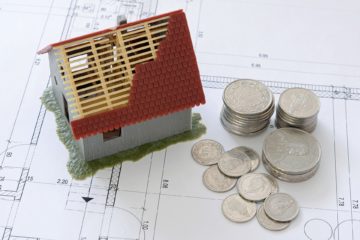There has been an update to when this will be introduced, click here for further details
VAT Reverse Charge is a major change to how VAT is collected in the building and construction industry. It will affect how you account for VAT if you buy or sell in construction services. This change is due to take affect on 1st October 2020.
The new VAT reverse charge legislation has been implemented to prevent VAT fraud.
This change only applies if the customer and supplier are registered for VAT. Reverse charge applies to payments reported through CIS, whether the CIS payment is made gross or net of tax. If reverse charge does not apply, nothing changes, you should account for VAT the normal way.
How Does VAT Reverse Charge work?
Under normal VAT rules, suppliers charge VAT, the customer pays the VAT to the supplier and the supplier pays the VAT to HMRC.
Under the new reverse charge VAT, it is the customer, not the supplier, who pays the VAT to HMRC. So this is instead of paying VAT to their suppliers.
If the supplier is VAT registered and the customer is not, then the supplier deals with the VAT in the normal way. Thus you will need to check with each customer/supplier whether they are VAT registered.
This does not apply to end users or intermediary suppliers.
As a supplier, you will need to check if your customer is either one of these.
Invoicing Customers
Under VAT reverse charge the way you invoice customers will have to change. This is what you need to be aware of:
- Do not include the VAT in the total amount due to the supplier.
- Show the VAT charge rate on the invoice.
- Tell the customer that reverse charge applies.
VAT Returns
Reverse Charge will affect your VAT returns. If reverse charge VAT applies, suppliers will no longer need to declare the VAT. So they will not have to include this on their VAT returns.
As a result of this customers will have to include the VAT on their VAT returns. The VAT of the supply will need to be included as though it were a sale, as Output VAT. But the net value of the supply should be included in purchases.
Does VAT Reverse Charge apply to you?
Services this does apply to:
- Groundwork’s and other preparatory works
- Construction, alteration and repair of buildings
- Installation of heating and lighting power systems
- Internal and external painting and decorating.
Services this does not apply to:
- Professional services of architects and surveyors
- Extraction of minerals
- Drilling for oil or gas
- Repair of building service components
Does this apply to just labour charges like CIS?
No, it applies to both materials and labour. If materials are supplied separately, they are not subject to the reverse charge.
How will this effect my business?
This may have an affect on the cash flow of certain businesses. A few suggestions to help with this from HMRC are to opt into monthly VAT returns, thus paying smaller amounts more regularly.
HMRC understands that you may have some difficulties with this to start with and have said they will apply a light touch to any errors made in the first 6 months of the new legislation.
If you have any queries or would like any help with this, please contact us.
Sources:
https://www.gov.uk/guidance/vat-domestic-reverse-charge-for-building-and-construction-services
Please note: This article is intended to be an explanation of general principles and is not directed as advice for your particular situation. Please always check with qualified professionals regarding your business.

